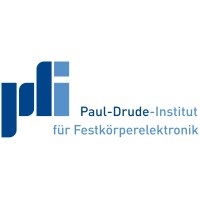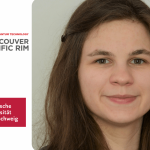Quantum News Briefs: April 10, 2024: Advanced imaging techniques on a semiconductor material reveal ‘surprising’ hidden activity; D-Wave’s Qubits 2024 Quantum Computing Conference Announced for June 17-18 in Boston; “Quantum rush: Denver-Boulder area aims to be the Silicon Valley of the future”; and MORE!

Quantum News Briefs: April 10, 2024: Press release summaries below:
Advanced imaging techniques on a semiconductor material reveal ‘surprising’ hidden activity
In a new study by researchers from Pennsylvania State University and the Paul Drude Institute for Solid State Electronics, a semiconductor material, vanadium dioxide (VO2), has been observed actively switching between metal and insulator states in real-time device geometry, a first of its kind using X-ray diffraction microscopy. This novel imaging approach provided a unique view of a fully operational electronic device and uncovered unexpected behavior in the underlying substrate, titanium dioxide (TiO2), which actively responded to the VO2’s transitions. These findings, hinting at the substrate’s significant role in semiconductor processes, promise advancements toward faster, more energy-efficient electronic devices. The study, highlighting VO2’s potential for low-energy consumption and rapid switching capabilities, could revolutionize electronics, particularly in energy-intensive data centers and emerging neuromorphic computing, by offering a more efficient alternative to traditional silicon-based transistors.
D-Wave’s Qubits 2024 Quantum Computing Conference Announced for June 17-18 in Boston

D-Wave Quantum Inc. (NYSE: QBTS), a pioneering quantum computing firm, announced its Qubits 2024 conference, set for June 17-18 in Boston, themed “Success, Powered by Quantum.” The event will spotlight D-Wave’s annealing quantum computing technology and real-world applications in collaboration with partners and clients like Momentum Worldwide and Los Alamos National Lab. Aimed at showcasing quantum technology’s transition from experimental to operational use, the conference will cover advancements in quantum-powered algorithms for AI, customer-driven quantum-hybrid applications in optimization, and the latest in quantum business trends. Keynote speakers include industry experts Brian Lenahan and Bob Sorensen, with D-Wave also offering a free live stream of select sessions for global virtual attendance.
In Other News: CNBC article: “Quantum rush: Denver-Boulder area aims to be the Silicon Valley of the future”

According to a recent CNBC article, the Denver-Boulder region is making a significant mark on the quantum technology landscape, with companies such as Atom Computing and Maybell Quantum at the forefront of building powerful quantum computers and essential infrastructure. Colorado’s ambition to become a national hub for quantum technology is supported by the potential of receiving millions in federal funding, aiming to harness quantum computing’s promise to vastly outpace current computational capabilities and revolutionize fields like medicine, defense, and agriculture. Highlighted in CNBC’s “Cities of Success” series, this move could position Colorado as a critical player in the global quantum race, leveraging the region’s ecosystem and investments from both the private and public sectors, including a significant push from the state government under Governor Jared Polis to secure additional investment contingent on federal selection. A video about this subject will air soon on the NBC channel.
In Other News: Nature Physics comment: “A call for responsible quantum technology”
As the quantum technology (QT) field evolves, there’s a growing consensus on the need for “guardrails” to ensure its development benefits humanity and the planet, highlights a new Nature Physics comment. Highlighting the transformative potential of QT in areas like chemistry, healthcare, finance, and defense, researchers are calling for proactive measures to address ethical, legal, social, and policy implications. This initiative, partly driven by parallels with the challenges seen in AI innovation, aims to manage QT’s risks, including threats to privacy and cybersecurity from quantum algorithms capable of breaking current cryptographic protocols. An interdisciplinary team, including experts from Stanford University, has developed a framework for responsible QT innovation, focusing on safeguarding against risks, engaging stakeholders, and advancing social good. This framework emphasizes the importance of responsible research and innovation, especially in the early stages of QT’s development, to ensure its positive impact on society and adherence to principles like the United Nations Sustainable Development Goals.




















